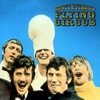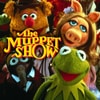

Buster Keaton, born Joseph Frank Keaton on October 4, 1895, stands as one of the seminal figures in American comedy and silent film. From humble beginnings in Piqua, Kansas, Keaton's extraordinary life journey carried him through an illustrious career in entertainment that spanned over six decades. As a child, he was immersed in the world of Vaudeville, touring with his parents' comedic act, which proved instrumental in shaping his unique brand of physical comedy, earning him the nickname The Great Stone Face.
Keaton rose to prominence in the 1920s during the golden age of silent films. Recognized for his distinctive deadpan expression, a stark contrast to the exaggerated mannerisms of his contemporaries, Keaton's comedic genius lay in his ability to navigate high-risk physical stunts with a stoic demeanor. His prolific body of work includes iconic films like The General (1926), Sherlock Jr. (1924), and Steamboat Bill Jr. (1928), wherein his innovative use of visual comedy contributed significantly to the evolution of cinematic language.
However, the advent of sound in films ushered in a challenging phase for Keaton. He struggled to transition from silent films to "talkies," leading to a decline in his career. Despite personal and professional setbacks, including struggles with alcoholism and financial difficulties, Keaton persevered, eventually experiencing a career revival in the 1950s. His contributions to cinema were recognized with an honorary Academy Award in 1959. Buster Keaton passed away on February 1, 1966, leaving behind a legacy as a pioneering comedian and filmmaker whose influence continues to resonate in contemporary cinema.

Likes/Dislikes by U.S. Region
61%
39%
54%
46%
60%
40%
55%
45%
61%
39%
Likes/Dislikes by Region
hover over the map to see breakdown
Rankings
SEE ALL RANKINGS
#22
OF 101
#43
OF 324
#67
OF 98
Help Topic: What do these scores mean?
People
Films
Music
Fictional Characters
TV
why?


BBC1 | Comedy | 1969 - 1974 | Ended | 4 Seasons | 47 Episodes
John Cleese, Terry Jones, Graham Chapman
why?


NBC | Comedy | 1976 - 1984 | Ended | 6 Seasons | 136 Episodes
John Candy, Robin Duke, Joe Flaherty
why?


NBC | Science fiction | 1966 - 1969 | Ended | 3 Seasons | 81 Episodes
William Shatner, Leonard Nimoy, DeForest Kelley
why?


SYN89 | Children | 1974 - 1981 | Ended | 5 Seasons | 122 Episodes
Frank Oz, Richard Hunt, Dave Goelz
why?


NBC | Animated | 1959 - 2024 | Returning Series | 5 Seasons | 138 Episodes
Bill Scott, June Foray, Paul Frees
why?


BBC2 | Sitcom | 1975 - 1979 | Ended | 2 Seasons | 12 Episodes
John Cleese, Prunella Scales, Connie Booth
why?


CBS | Sitcom | 1970 - 1977 | Ended | 7 Seasons | 168 Episodes
Mary Tyler Moore, Ed Asner, Gavin MacLeod
why?


CBS | Sitcom | 1965 - 1970 | Ended | 5 Seasons | 138 Episodes
Don Adams, Barbara Feldon, Edward Platt
why?


CBS | Anthology | 1959 - 2016 | Ended | 5 Seasons | 156 Episodes
Rod Serling, Robert McCord, Jay Overholts
Sports
Brands & Products
Books
Audience Affinity
Movies
504
Action & Adventure Movies
504
Action & Adventure
504
Sci-fi & Fantasy
437
Entertainment
429
Celebrity
410
History
62
Hip Hop Music
-7
































































































